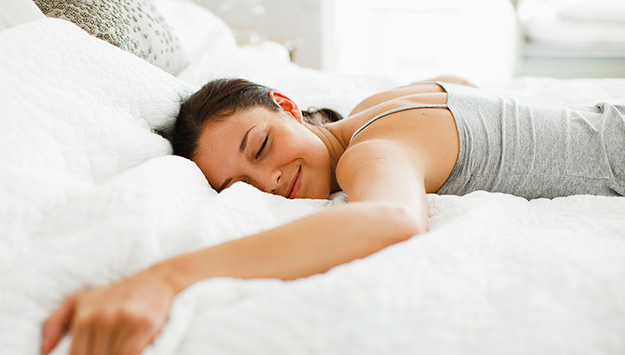You may eat an impeccable diet, put your gym membership to good use, and have a good balance between work and family life, but nothing is so ruinous to good health as not getting enough sleep.
A pattern of sleeping less than six hours per night affects the body in several ways, including an increase in the stress hormone cortisol. High levels of cortisol reduce serotonin and melatonin, the hormones of serenity and sleep. Additionally, high levels of cortisol impact the immune response, making you more susceptible to infections, cold sores and autoimmune disease. To make matters worse, not sleeping well may be the cause of weight gain as a good night’s sleep increases the release of leptin, a hormone that signals a sense of satiety and suppresses appetite. In contrast, insufficient sleep increases ghrelin, a hormone that stimulates hunger.
Sleep hygiene
The term “sleep hygiene” has nothing to do with flossing and everything to do with adopting tried and true guidelines that are important for promoting a good night’s sleep. These include trying to get to bed well before midnight. Humans are creatures of habit, and the body responds well to a regular timetable. If possible, try to go to bed and wake up at the same time every day, including weekends.
The body produces a spurt of growth hormone between the hours of 11pm-1am, which helps to repair muscle tissue and increase bone density. In what is perhaps a throwback to our prehistoric ancestors, sleep is best had in cave-like conditions – cool (under 21°C) and utter darkness.
Herbal sedatives
Sedative herbs have been used for centuries to improve sleep quality and duration. Unlike some pharmaceutical sleeping medication, sedative herbs aren’t addictive and won’t leave you feeling drowsy in the morning. In practice, if people feel groggy with sedative herbs, it’s a sign they need more sleep, and taking the herbs is revealing a true state of fatigue.
Sedative herbs include valerian, lemon balm, hops, Californian poppy, skullcap, passionflower and zizyphus. Combinations of these are available in tablet or tincture form from health-food stores. For persistent insomnia, take the highest recommended dosage as per the label instructions.

